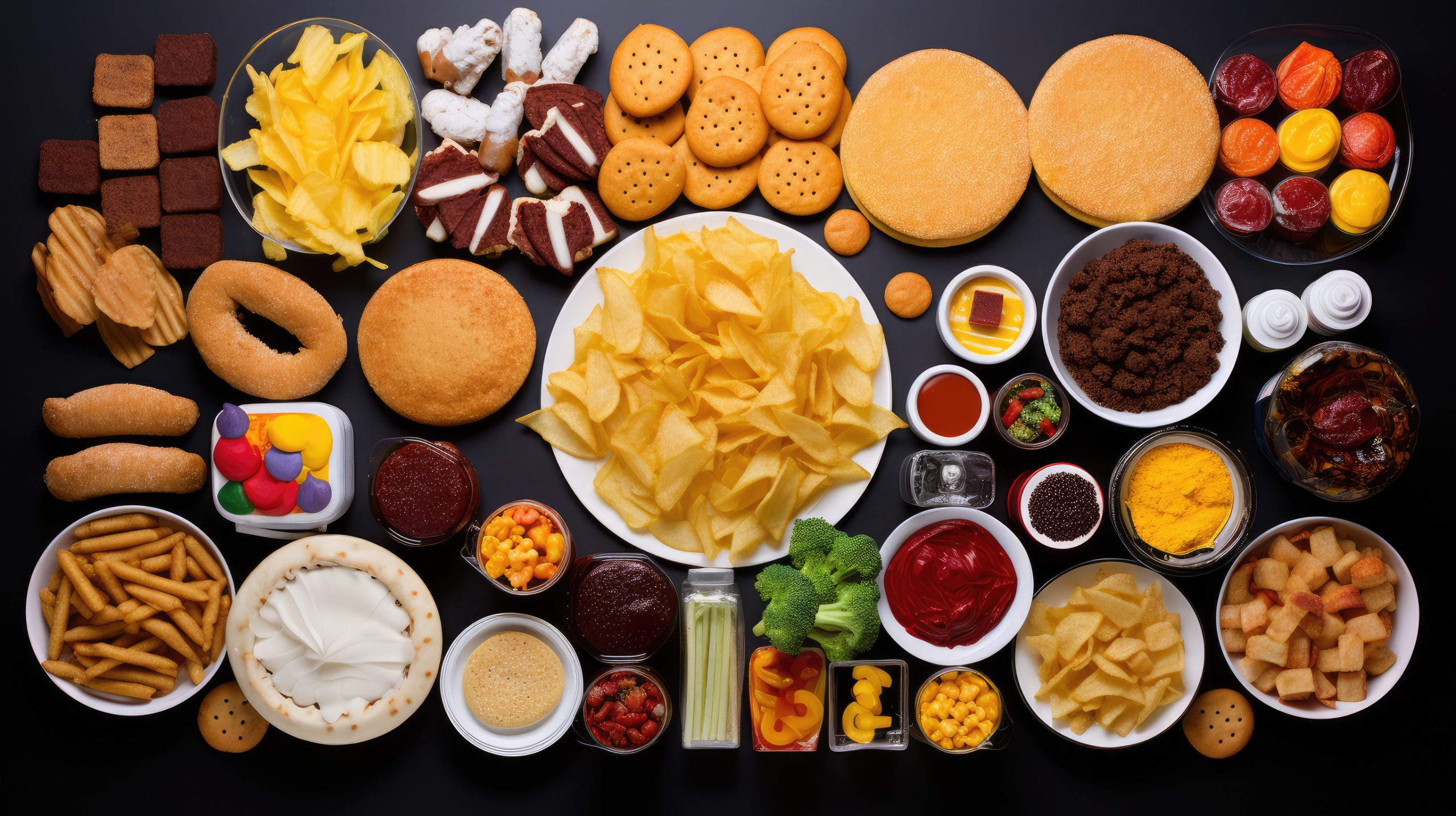You finish a bag of chips and immediately crave more. You reach for ice cream after a stressful day—even when you’re not hungry. Is it just bad habits, or is ultra-processed food actually addictive? More scientists, doctors, and dietitians are saying yes—and the research is backing them up. The idea that food addiction is real is gaining momentum, especially when it comes to the highly engineered snacks many of us eat daily without even thinking.
1. What Exactly Counts as Ultra-Processed Food?
Ultra-processed foods aren’t just frozen dinners and candy bars—they include a huge range of modern staples. Think: packaged snacks, sugary cereals, flavored yogurts, fast food, sodas, and even many “diet” or “health” bars. These items are typically made from ingredients you wouldn’t find in your home kitchen, like emulsifiers, artificial colors, and industrial oils. They’re designed to be tasty, convenient, and shelf-stable—but not necessarily nutritious. Scientists now distinguish ultra-processed food from minimally processed items like canned beans or frozen vegetables because of how far removed they are from their natural origins.
2. Your Brain Reacts to These Foods Like It Does to Drugs

Image Source: 123rf.com
Multiple studies have shown that ultra-processed foods can light up the brain’s reward system—particularly the dopamine pathway—in a way that mimics addictive drugs. When you eat something loaded with sugar, fat, and salt, your brain releases feel-good chemicals that reinforce the behavior. The more often you eat it, the stronger the association becomes. Over time, this can lead to cravings and compulsive eating, even when you’re full. Researchers argue that it’s not willpower that’s failing—it’s biology being hijacked.
3. Withdrawal Symptoms Are Real
Have you ever tried to give up junk food and felt cranky, tired, or anxious? You’re not imagining things. Some people report withdrawal symptoms—similar to those experienced when quitting caffeine or nicotine—when cutting out ultra-processed food. Headaches, irritability, and intense cravings are common. These symptoms point to the possibility that food addiction is more than just a lack of discipline—it may be a real, physiological dependency.
4. Not Everyone Reacts the Same Way
Here’s where things get complicated: not everyone gets “hooked” on ultra-processed foods the same way. Genetics, stress levels, mental health, and even gut bacteria can affect how your body responds. Some people can enjoy the occasional donut without issue, while others feel out of control after just one bite. Researchers are exploring the idea of “food addiction sensitivity”—a concept that helps explain why certain individuals are more vulnerable to compulsive eating patterns. It’s not a one-size-fits-all issue, but it is widespread.
5. The Food Industry Designs Foods to Be Addictive
It’s not by accident that you can’t stop at just one chip. Food companies spend millions perfecting the “bliss point”—the precise combination of salt, sugar, fat, and texture that makes food irresistible. They also consider things like crunchiness, mouthfeel, and packaging appeal to trigger emotional and sensory cravings. Many ultra-processed food products are engineered to override your body’s natural fullness cues. In short, these foods are designed for overconsumption, not satisfaction.
6. Mental Health and Food Addiction Are Closely Linked

Image Source: 123rf.com
People struggling with anxiety, depression, or trauma often report stronger cravings for comfort foods—especially those loaded with sugar and fat. Emotional eating is common, but when tied to ultra-processed food, it can become a vicious cycle. The foods offer temporary relief, followed by guilt and shame, which leads to more cravings. Some experts believe treating food addiction means addressing underlying mental health concerns—not just changing what’s on your plate.
7. It’s a Public Health Issue, Not Just a Personal One
Obesity, diabetes, and heart disease are all rising alongside the increased availability of ultra-processed foods. And while personal responsibility plays a role, the environment we live in makes it hard to avoid these options. From school cafeterias to vending machines to cheap grocery staples, ultra-processed food is everywhere. Experts say we need a societal shift—similar to what happened with tobacco—to push for clearer labeling, better education, and access to whole foods. Blaming individuals won’t fix a broken system.
8. Breaking the Cycle Takes More Than Willpower
Overcoming ultra-processed food addiction doesn’t mean going cold turkey overnight. It often requires gradual changes, like replacing packaged snacks with whole foods, drinking more water, and building meals with protein and fiber. Support systems, therapy, and mindful eating strategies can also help. The key is understanding that cravings are rooted in both biology and behavior. With patience and self-compassion, it is possible to retrain your taste buds and your brain.
Time to Rethink What We’re Really Eating
The science is clear: ultra-processed food isn’t just empty calories—it may be rewiring our brains and bodies in ways we’re only beginning to understand. Addiction to these foods is real for many people, and it’s fueled by an industry that prioritizes profit over public health. But knowledge is power. By learning the science, checking labels, and making small shifts, we can start to take back control—one bite at a time.
Do you think ultra-processed food addiction is real? Have you struggled to cut back on junk food or noticed cravings you can’t explain? Share your story in the comments!
Read More
5 Signs Your Shopping Addiction Is Ruining Your Relationship


